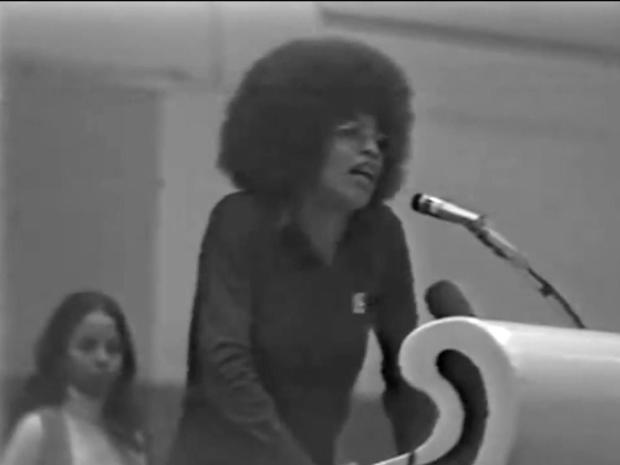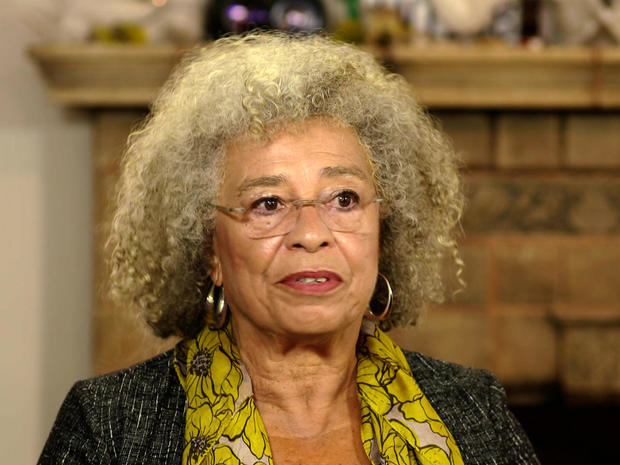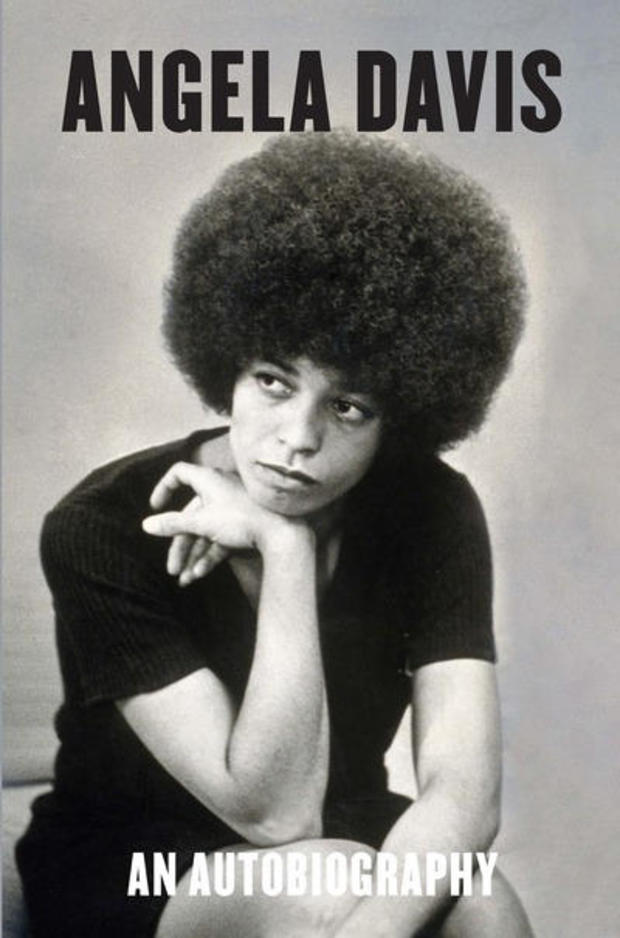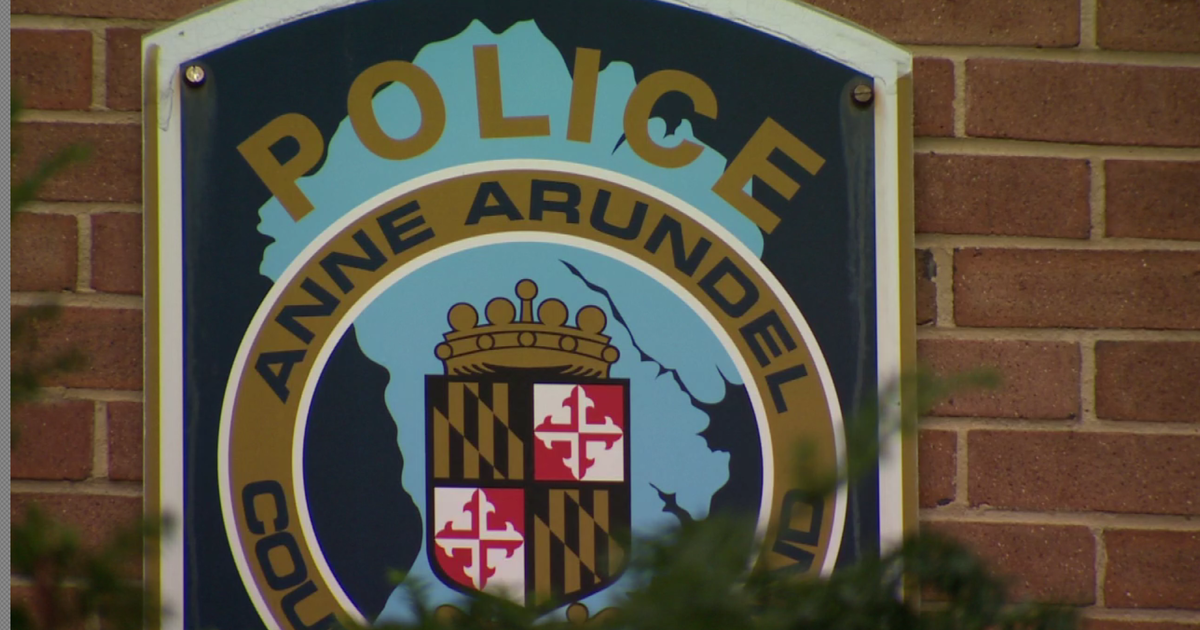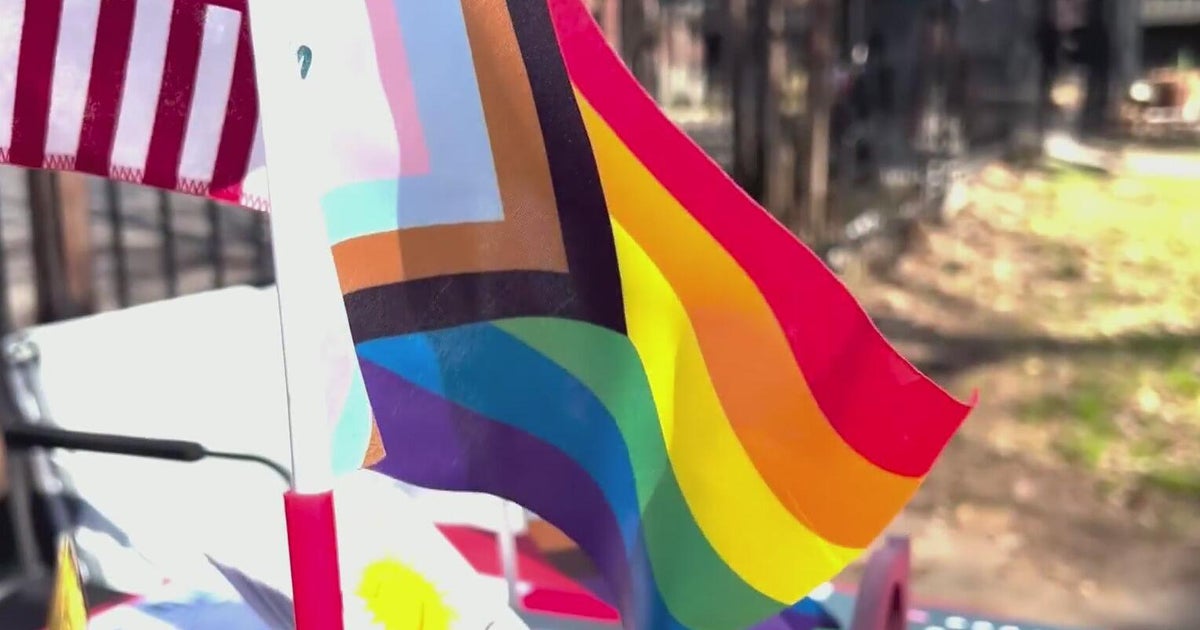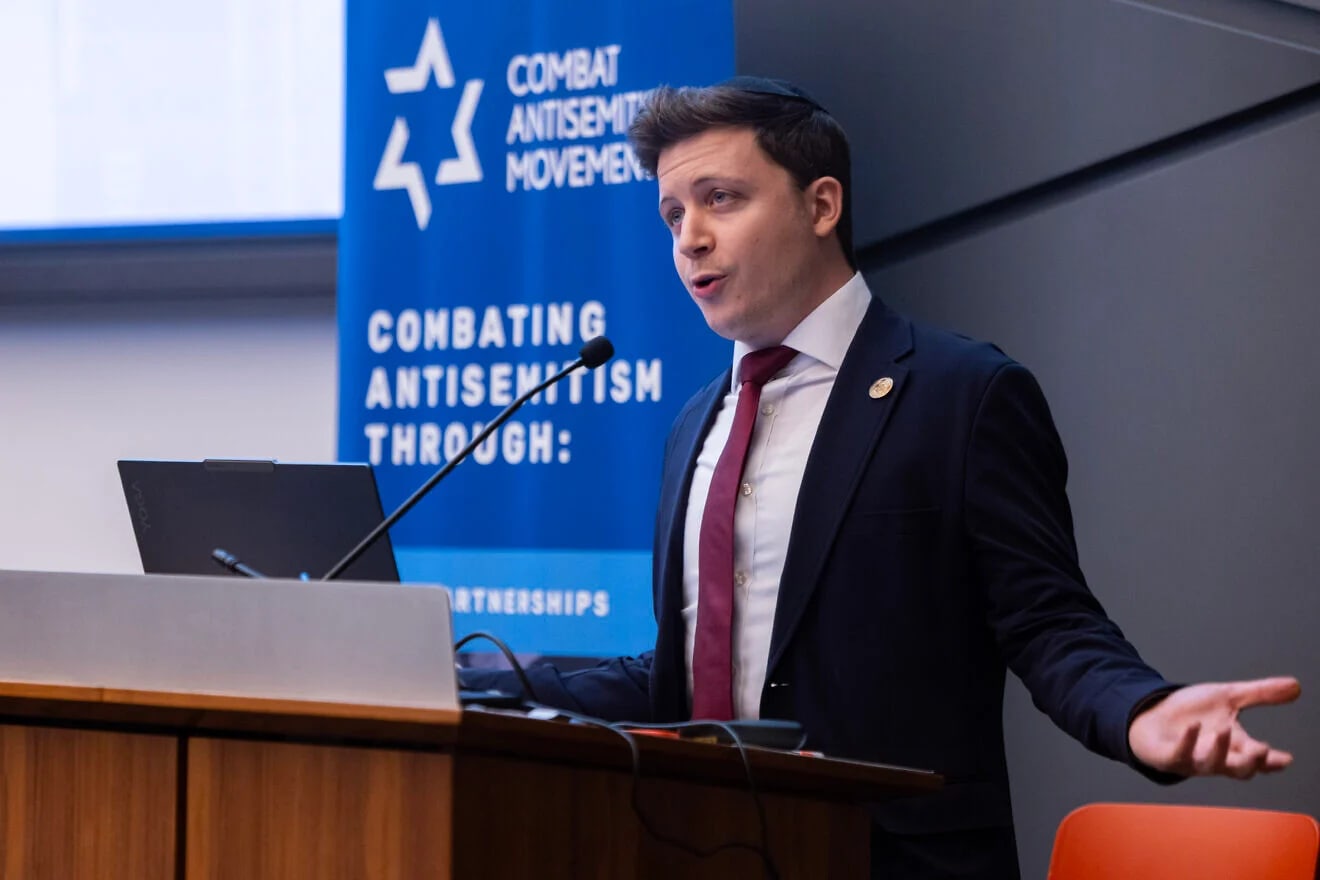Angela Davis on social change: "No movement is possible without hope"
After more than 50 years, Angela Davis is still instantly recognizable worldwide as the face of revolution. But at the age of 78, she has come to terms with her image. Asked to comment on her likeness appearing in posters and murals, she said, "I felt really uncomfortable, and that is because I think I was expecting to find myself in those images. Now I look at them and I see all of the millions of people who came together to participate in a struggle."
For half a century, Davis has been sounding alarms. Back in 1972 she said, "Racism is indeed the key problem faced by the people of this country, and the threat of fascism is growing." And in 1979 she told a crowd in Florida, "There is a proliferation of police assaults on the Black community all over the country."
She has continued to sound alarms, as when she addressed the Women's March in 2017: "Those who still defend the supremacy of white male hetero-patriarchy had better watch out!"
She has embraced the advocacy of speaking out. "Of course, I love being a revolutionary," she said in 2006. "I love being radical; it's important to be radical."
The roots of that radicalism can be traced to her upbringing in Birmingham, Alabama. "I grew up in a world that was entirely organized according to the dictates of white supremacy."
Correspondent Lilia Luciano asked, "I understand you grew up in a street that was known as Dynamite Hill, because of the amount of terrorist bombings when Black families moved into that community?"
"My very first memories are the sounds of dynamite," said Davis. "And then also, the fear of watching my father bring his gun out when we thought that the Ku Klux Klan might be assaulting our home."
A Phi Beta Kappa at Brandeis University, Davis did graduate work in Germany and San Diego. By the age of 26, she was an assistant professor of philosophy at UCLA. She had joined the Black Panther Party and the Communist Party – and that made her a target of California Governor Ronald Reagan. The University of California's Board of Regents fired Davis in 1970.
She said at the time, "When the regents finally decided to fire me, I said that it was obvious that there was racism involved."
Davis told Luciano, "The very first press conference I held in the immediate aftermath of my firing at UCLA, I think my eyes were wide open, and my knees were shaking under the table. And today people look at that and they say, 'Oh, you were so much more militant then.' And I said, 'No, I was just afraid!'" she laughed.
A year later, a bloody courthouse siege at the Marin County Civic Center in San Rafael, Calif., brought her worldwide attention, though she wasn't there. An attempt to free the so-called "Soledad Brothers" (a group of inmates accused of killing a prison guard) ended in a shootout. When it was over, Superior Court Judge Harold Haley was dead, along with one of the assailants and two of the inmates.
The guns used in the attack were traced to Davis; she said she had bought them for her security team after getting death threats.
She went into hiding. The FBI put Davis on its list of 10 Most Wanted fugitives.
Luciano asked, "Why did you run?"
"I didn't have a choice," Davis replied. "All of my comrades and friends and I were aware of the ways in which people who were trying to turn themselves in to the police had been killed."
The FBI caught up with her at a hotel in Manhattan. She was put at times in solitary confinement, while around the world protesters called for her release. Then, she was extradited to California.
Davis was charged with conspiracy, kidnapping and murder. She faced the death penalty.
An all-white jury deliberated for 13 hours before delivering its verdict on June 4, 1972: Davis was acquitted on all counts.
"It was not until that moment that I realized that I had a future ahead of me," she said.
Davis set off on a tour of the U.S., as well as the Eastern Bloc and the Soviet Union. She would leave the Communist Party twenty years later.
"When I left the Communist Party I made it very clear that although I may no longer be a Communist with a capital C, I remain a communist with a small c," she said. "Historical experiments don't necessarily produce what we want them to."
The 16 months in jail before her acquittal had given Davis a new commitment: "I have come to think about my incarceration as a gift, witnessing the ways in which other women in prison were being treated. That really consolidated what I think has been my vocation."
She has since dedicated her life to the issue of prisons – not reforming them, but abolishing them.
Luciano asked, "There are words like 'defund' or 'abolish.' At the same time that they elevate a cause, they also create such division. Why not advocate for reform?"
"Well, I really try to learn from history," Davis said. "So, if someone made the argument that 'Abolition is too strong a term,' I would remind people that during the era of slavery there were those who made the very same argument."
The United States has four percent of the world's population, but 20 percent of the world's prisoners, according to the ACLU.
Thirty-eight percent of the U.S. prison population is Black, according to the U.S. Census Bureau.
Luciano asked, "What does a world post-prison look like?"
"My question would be, what would a world have to look like in order not to require the persistent interventions of police and imprisonment?" Davis replied. "We need better education. We would need a better health care system. We would need a better world! So, abolition urges us to expand and make more capacious our very vision."
Angela Davis is still writing, still teaching. And after 50 years of fighting the same fights, it may seem the more things change, the more the causes remain the same.
But she remains energized and optimistic.
"There are so many issues that you've fought against that seem current; you were fighting against them 50 years ago," Luciano said. "How do you not lose hope?"
"No change is possible without hope," she replied. "No movement is possible without hope."
A hope reflected in her November 1972 speech at California State University Fullerton: "We have to march on with the unshakeable confidence that we will win our fight for a new society, our fight for a society where freedom, justice, equality, abundance, dignity and happiness belongs to all."
For more info:
- "Angela Davis: An Autobiography" by Angela Y. Davis (Haymarket Books), in Hardcover, eBook and Audio formats, available via Amazon, Barnes & Noble and Indiebound
- Angela Davis, UC Santa Cruz
Story produced by Alan Golds. Editor: Ed Givnish.
